June’s story: weaving Kenyan crafts into global markets
June Ng’ang’a's business supports women from marginalised communities by nurturing their traditional artistry and bringing their crafts to new markets.

Traditional crafts like beadwork, weaving, and crocheting play a significant role in Kenya’s cultural heritage. These skills have been passed down from generation to generation. However, modern trends have gained popularity, leading to a decline in traditional artistry and skill sharing. June Ng’ang’a is on a mission to preserve Kenya’s traditions, share its crafts with the world, and empower women in the process. Here, she explains how she’s doing that.
“My name is June Ng’ang’a, and I am the founder of Ufumi Culture, a women-led organisation that I started in 2024. Our mission is to support women from marginalised communities in Kenya by nurturing their skills in weaving, beadwork, crocheting, and knitting, and by connecting their creations to broader markets. We currently work with women from Lodwar, Kajiado, Machakos, Mukuru, and Kibera, ensuring that their artistry is both recognised and rewarded.
I was inspired to establish Ufumi Culture with two primary goals: to create employment opportunities and to combat poverty. I live by the belief that God gave us two hands: one to provide for ourselves, and the other to support someone else. For me, entrepreneurship is not just about business; it is an act of service and an opportunity to transform lives.
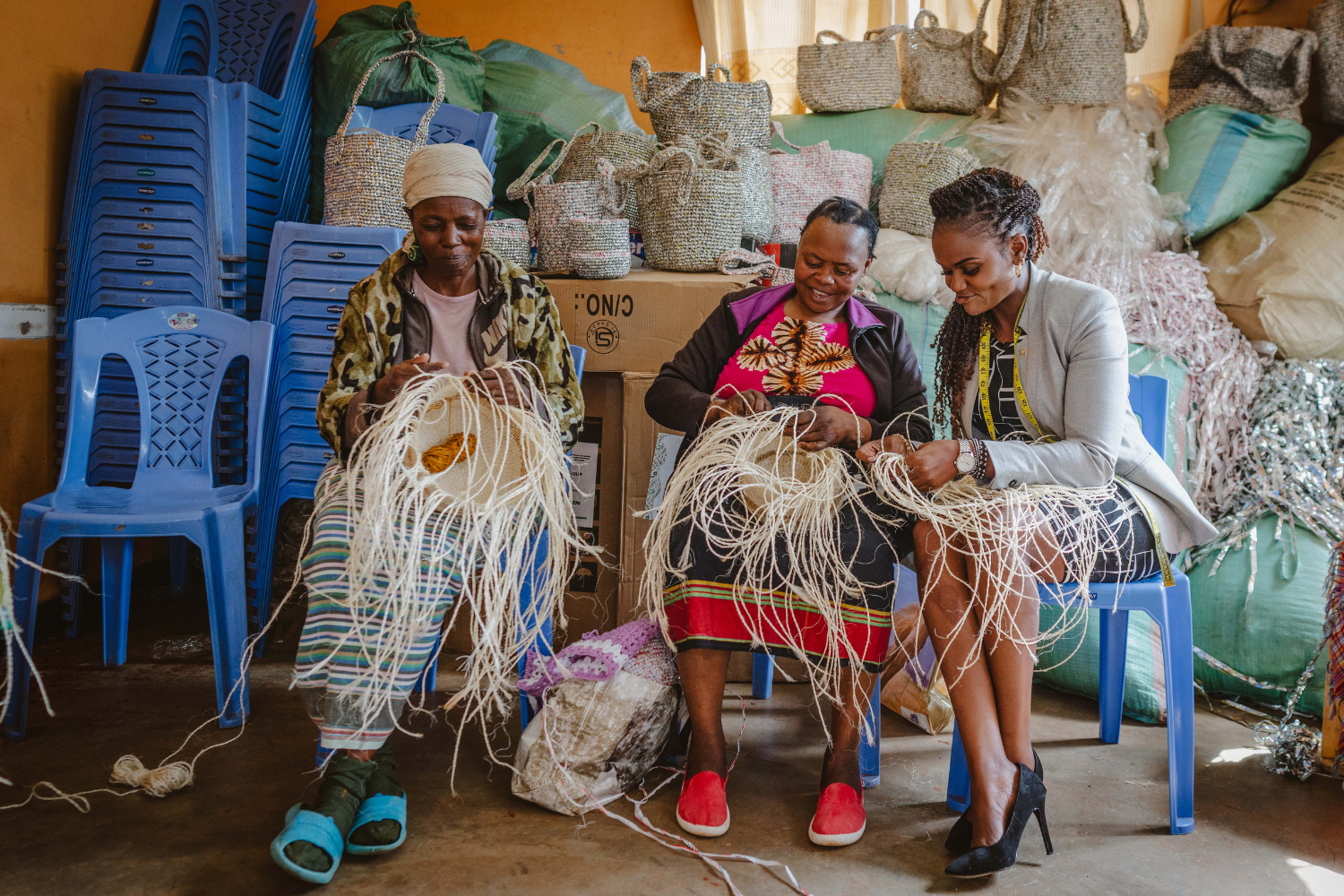
The women we work with are mainly elderly, and their talents are often overlooked. Their hands carry not just skill, but stories of tradition and resilience.
The women we work with are mainly elderly, and their talents are often overlooked. Their hands carry not just skill, but stories of tradition and resilience. We train them, help refine their craft, and most importantly, link their products to markets that value authenticity and heritage. Preserving culture is a central part of our mission. At a time when modern trends are eroding traditional practices, we want future generations to know and appreciate the artistry of their grandparents.
Building Ufumi Culture has not been easy. As a woman entrepreneur, I have faced doubts about my capabilities and had to work extra hard to prove myself. Accessing finance has been a major hurdle, with many institutions hesitant to support start ups. Market access has also posed challenges; introducing traditional crafts to consumers in new markets requires heavy investment in trade fairs and marketing, which can be costly for a young organisation.
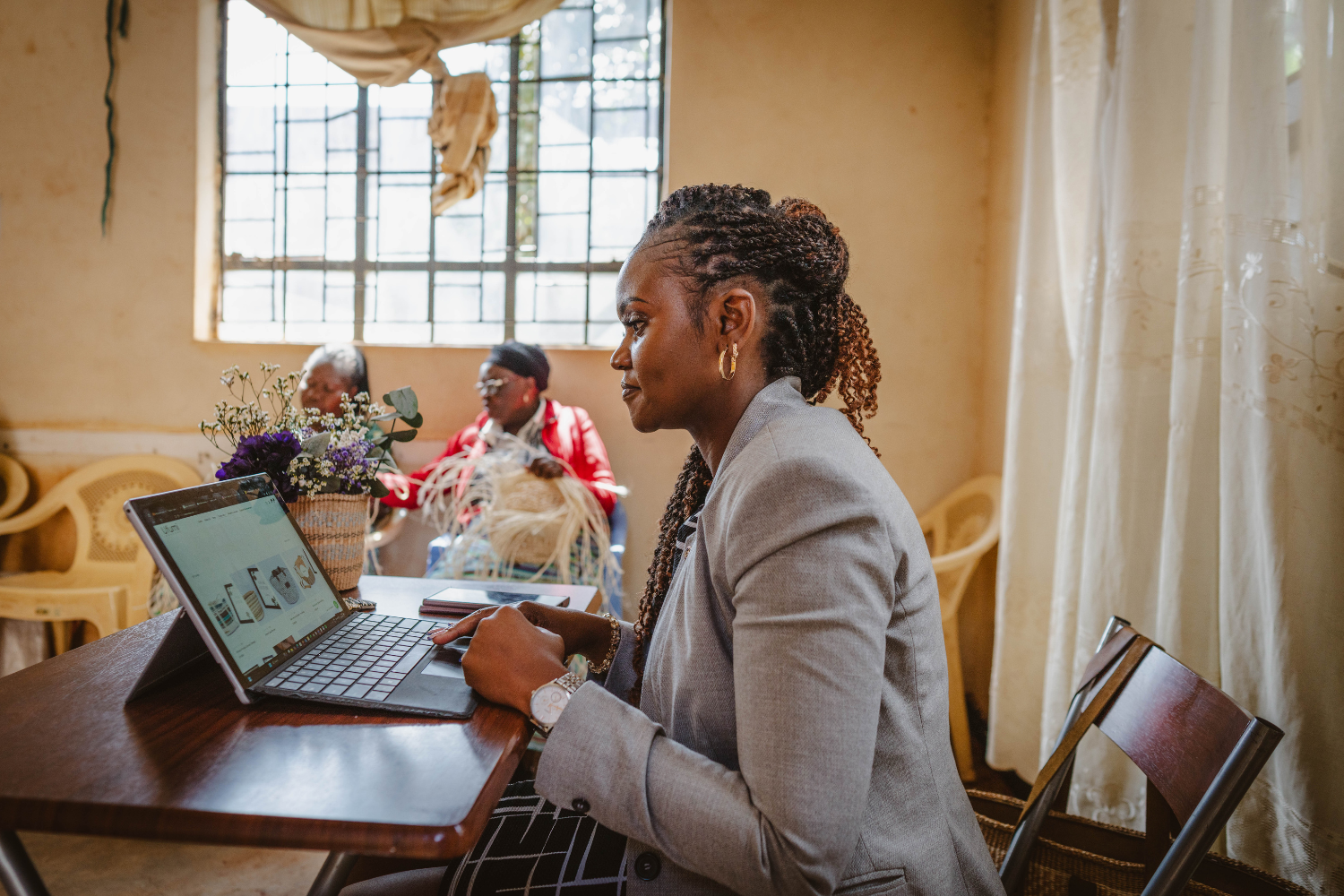
Internet access and digital platforms now enable us to coordinate with women in remote areas, track production progress, and market our products globally.
The Road to Markets programme came at the right time. As a free platform offering expert guidance, it provided me with invaluable knowledge in areas such as e-commerce, logistics, and export readiness. Before the programme, we didn’t even have a website. With the support of our coaches, we launched an e-commerce platform, learned about warehousing, product preservation, and shipping processes. The one-to-one coaching was particularly impactful, as it was tailored to Ufumi Culture’s specific needs. I had coaches who held me accountable, guided me on strategy, and encouraged me to make my own decisions.
The results have been transformative. We have shipped products seamlessly to South Africa and the United States with DHL as our logistics partner. Internet access and digital platforms now enable us to coordinate with women in remote areas, track production progress, and market our products globally. Through our online store and social media, we can tell our story, showcase our products, and reach customers without needing a physical shop.

For me, every sale is more than a transaction; it is a lifeline. It enables a woman to feed her family, send a child to school, or even dream of owning a home after years of living in informal settlements.
For me, every sale is more than a transaction; it is a lifeline. It enables a woman to feed her family, send a child to school, or even dream of owning a home after years of living in informal settlements. Our ultimate goal is to see every woman we work with become financially independent, empowered, and able to reinvest in her community.
When you empower a woman, you empower an entire community. The women of Ufumi Culture are not just artisans; they are nurturers, caregivers, and storytellers. Through their craft, they preserve culture, sustain livelihoods, and inspire hope. With Ufumi Culture, I want their stories to be told, not by others, but by themselves, through the beauty of their hands.”
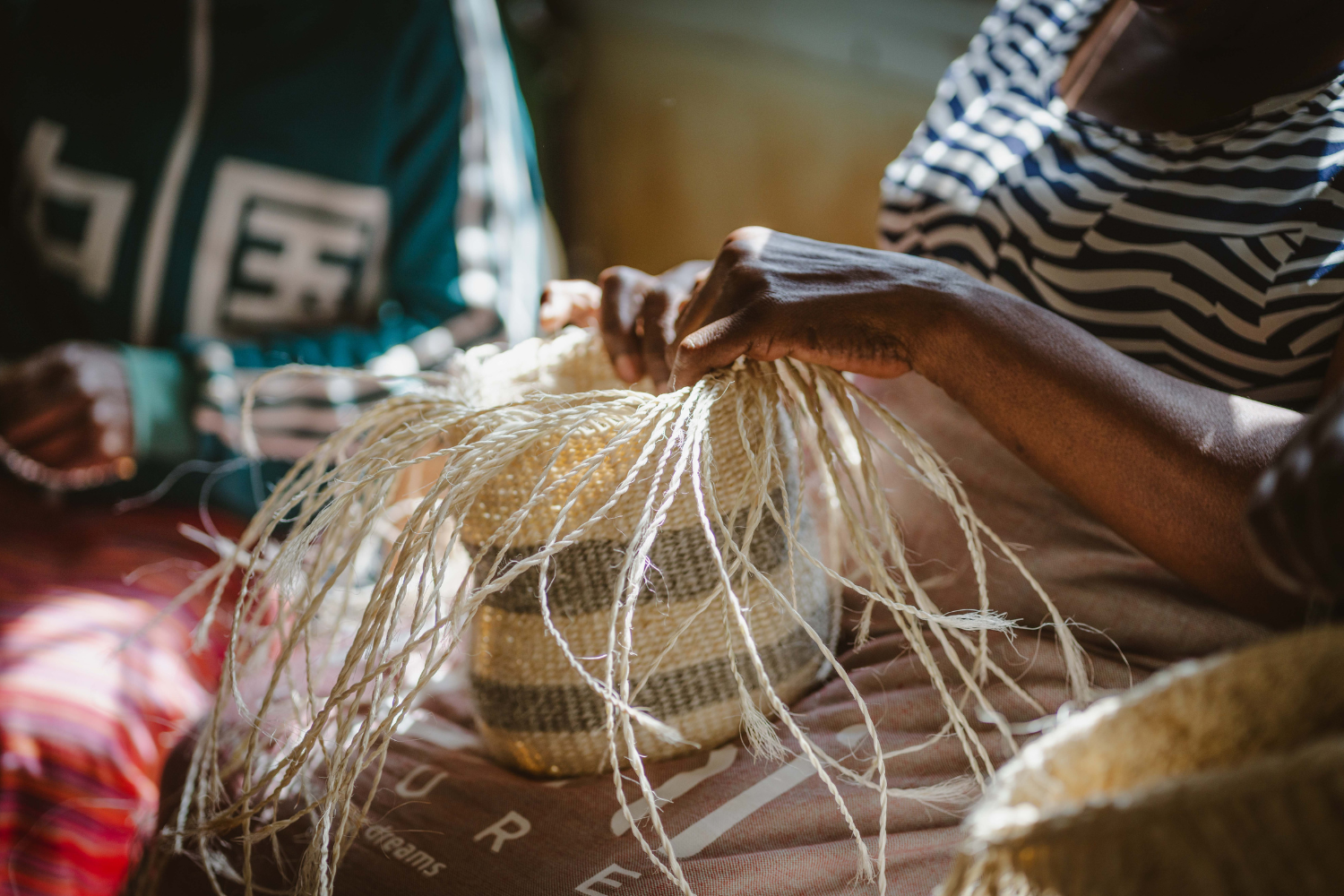
Become a corporate partner
Learn how your company can work with us to bring our services to more women entrepreneurs in low and middle income countries.

Read more success stories
-
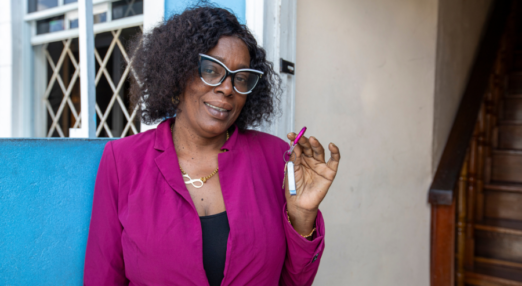
Dionne’s story: opening doors to new homes & new industries
Dionne Thomas' business utilises her legal expertise to support local and foreign clients with home rentals and purchases, travel arrangements, and more.
Read more
-
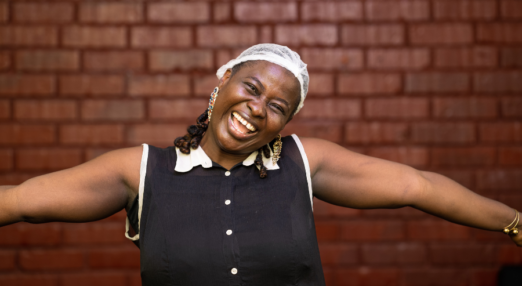
Bosede’s story: serving meals & serving communities
Bosede Laide Akindele's catering business provides more than just food, it also provides jobs and training opportunities to people in her community.
Read more
-

Sharon’s story: sustainable energy for South African communities
Sharon Gcwabe has a vision for a sustainable future. With her bio renewable energy company, she's bringing that vision to life.
Read more

